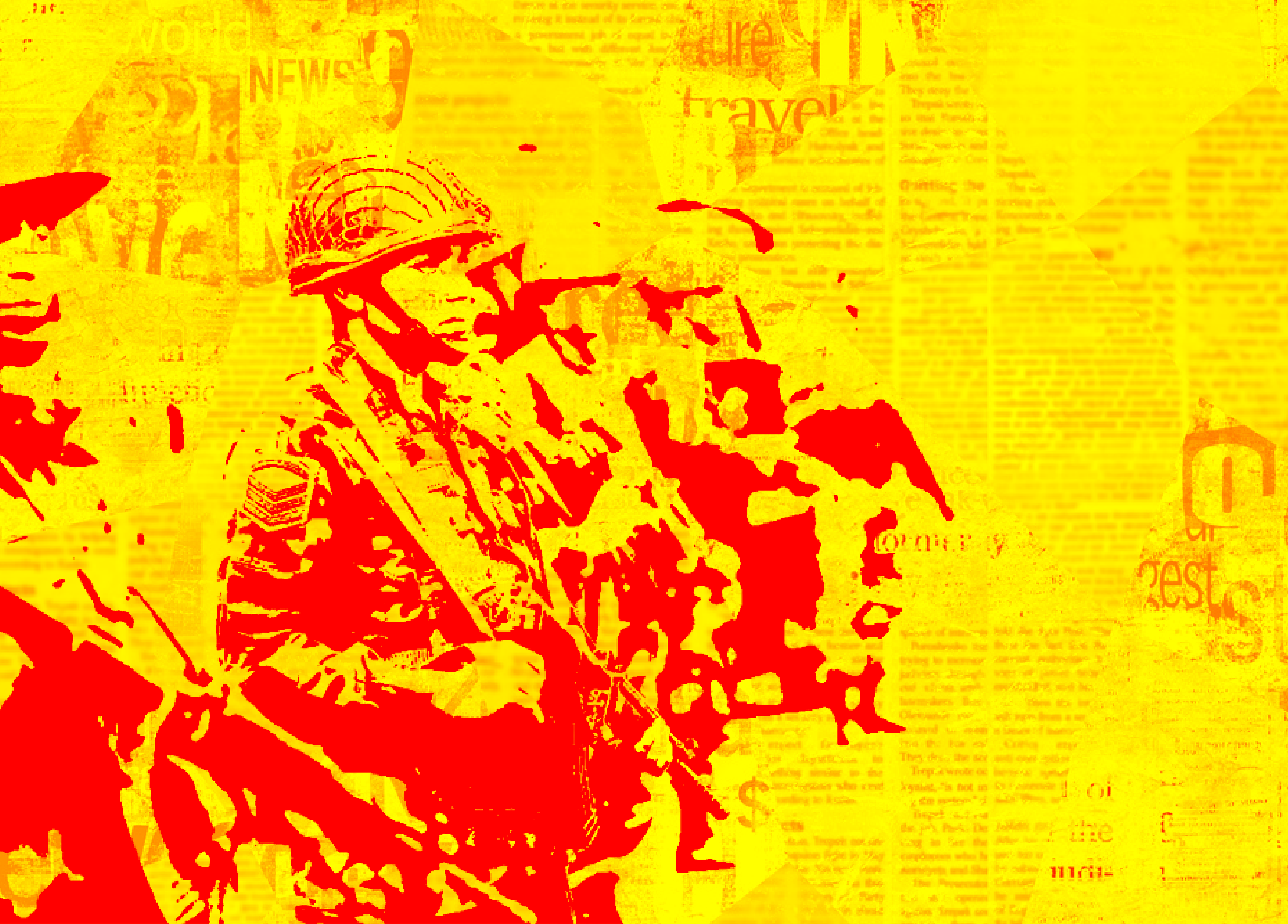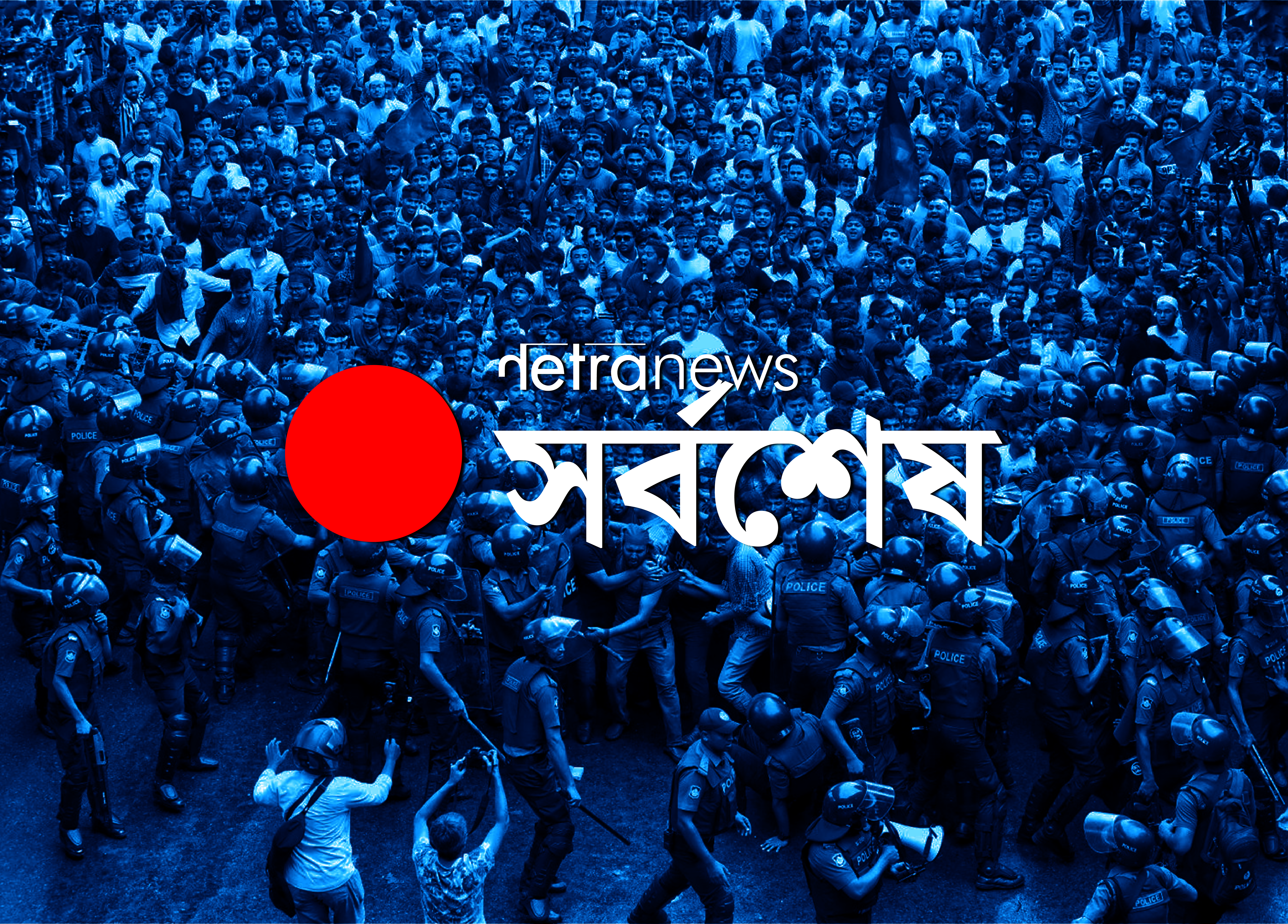More from Netra News:
Fresh statement from protest leader
Netra News has obtained a video statement from Abdul Kader, one of the coordinators of the anti-discrimination student movement leading the ongoing student protests in Bangladesh. We have
broadcast the statement on Facebook without any significant alterations or edits.
Key points of the statement:
- "Law enforcement agencies and party cadres launched sudden attacks on students, shooting and killing almost a hundred students like birds. Several of our coordinators have been abducted. [...] Intimidation is being used."
- "We cannot betray the martyrs by going to a roundtable discussion. We will not sit for dialogues under these circumstances. We unequivocally declare that our movement on the streets will continue until our demands are met."
- "We firmly believe that our patriotic army will stand by the students and the public in this justified movement of the student community."
- "We appeal to the nation: stand by us, stand by the ordinary students, stand by your kids."
- "Our nine demands are as follows:
- The Prime Minister must apologize to the nation by accepting responsibility for the student killings.
- The resignation of Home Minister Asaduzzaman Khan Kamal and Road Transport and Bridges Minister Obaidul Quader
- Dismiss the DIG (deputy inspector generals), Police Commissioner, and Police Superintendent of the areas where student killings and injuries occurred.
- The resignation of the Vice-Chancellors and Proctors of Dhaka University, Jahangirnagar University, and Rajshahi University."
- Arrest and file murder charges against each police officer and ruling party terrorist accused of student killings.
- Compensation for the families of killed and injured students.
- Ban party-affiliated student politics on all campuses.
- Reopen educational institutions and halls.
- Ensure that no student participating in the movement faces any academic or administrative harassment."
- "If our nine demands are met, we will sit for discussions with the general students. Through these discussions, we will finalize the dialogue with the government. Otherwise, our shutdown program will continue."
BNP leader Amir Khasru Mahmud Chowdhury arrested: family
Amir Khasru Mahmud Chowdhury, a senior leader with the opposition Bangladesh Nationalist Party (BNP), was arrested by authorities, his son told a Netra News contributor.
We are awaiting police confirmation.
Chowdhury would be the second senior opposition leader to be arrested since the anti-quota student movement began. A former cabinet minister, he led the opposition party's foreign affairs-related matters.
Students insist that they don't have any partisan affiliation, and their movement was specific to their demands, but government officials often blamed the BNP for the protests.
At least 25 more dead on Saturday, bringing total to 138
At least 25 people were killed on Saturday in yet another day of deadly violence in Bangladesh resulting from a ferocious government crackdown on a student movement that has morphed into anti-government protests, according to a count by our contributors on the ground who spoke to hospitals across the country, and a separate count of five additional deaths by a Dhaka-based newspaper.
Eighteen of the killings on Saturday took place during the day, while two people who were critically injured on Friday died in intensive care in a hospital. An additional five deaths from Narsingdi, a district close to Dhaka, were privately verified by a Dhaka-based daily, but Netra News wasn't able to independently verify the figure.
We also received updated information from prior casualties, bringing the total revised tally of confirmed deaths to 138 — a figure likely to be a conservative count, according to journalists on the ground. Hospitals face increased pressure from authorities to limit cooperation with reporters.
The police, more than any other government agency on the ground, appear more aggressive in curbing the protesters. Some protesters have responded with retaliation, setting fire to several police vehicles and police stations.
Following intense violence on Friday, the Bangladesh government introduced a curfew, ordered a so-called "shoot-at-sight" policy, and deployed the army to tame the protest, while an all-out Internet shutdown remained in effect.
The last time Bangladesh witnessed such emergency measures was in 2007 during a caretaker regime, when an emergency declaration coupled with army deployment brought calm in two days. However, this bout of unrest appears to continue unabated, as public anger spreads from students to the transport sector and other working-class segments of society.
(This is a developing story, and the details may change as they emerge.)
Disappearances feared in crackdown on protest leaders
After we reported earlier that a key leader of the anti-discrimination student movement, Nahid Islam, and former Dhaka University student union leader Nurul Haq Nur were
detained, several members of their families have allegedly been "held hostage" as a pressure tactic, according to Nahid and Nur's relatives and colleagues who spoke to Netra News.
Meanwhile, BBC Bangla
reports that while an unnamed police official privately acknowledged detaining Nahid Islam, a spokesperson for the Dhaka Metropolitan Police, Faruk Hossain, denied knowing anything about his arrest.
Nahid's father, Badrul Islam, told BBC Bangla that more than 18 hours after the arrest, the police refused to reveal his whereabouts.
Bangladeshi laws mandate that any individual detained must be presented before a court within 24 hours.
The denial and refusal by police to acknowledge a detainment are often seen as preludes to enforced disappearance.
Nahid's colleagues told Netra News that several others of their peers have been detained without any acknowledgement in what they called acts of "enforced disappearance."
At least eight killed on Saturday
At least eight people were killed on Saturday, July 20th, during the ongoing anti-government protests defying curfew in Bangladesh, according to a count by Netra News based on eyewitness accounts and a separate
count by BBC Bangla citing medical sources.
The latest count brings the confirmed tally of deaths resulting from the harsh crackdown on the protests to 113.
BBC Bangla reports that four of the deaths occurred in Jatrabari, Dhaka, during clashes with police. Medical sources told the outlet that the bodies stored in the Dhaka Medical College arrived from Jatrabari.
One other death occurred in Savar, on the outskirts of Dhaka, and 20 others were admitted to local hospitals with injuries.
In Uttara, Dhaka, Netra News received eyewitness accounts of three people killed when a group of unidentified individuals in plain clothes opened fire on protesters.
Netra News also received unverified reports of multiple dead policemen but is awaiting official confirmation.
Military largely restrained despite 'shoot-at-sight' orders
The army, which has been deployed alongside the curfew, appears to have not taken a harsh stance so far, our contributors from Dhaka report.
There are army checkpoints at various places in the capital, where army personnel check the identity cards of people on the streets and use loudspeakers to instruct everyone to stay indoors. Apart from Rampura and Shanir Akhra, the army has not been seen taking an aggressive stance in the capital.
The army's posture is significant because Obaidul Quader, the Awami League party secretary and a top cabinet minister, told the local press that the curfew and the deployment of the armed forces signify "shoot-at-sight" policy at "miscreants."














